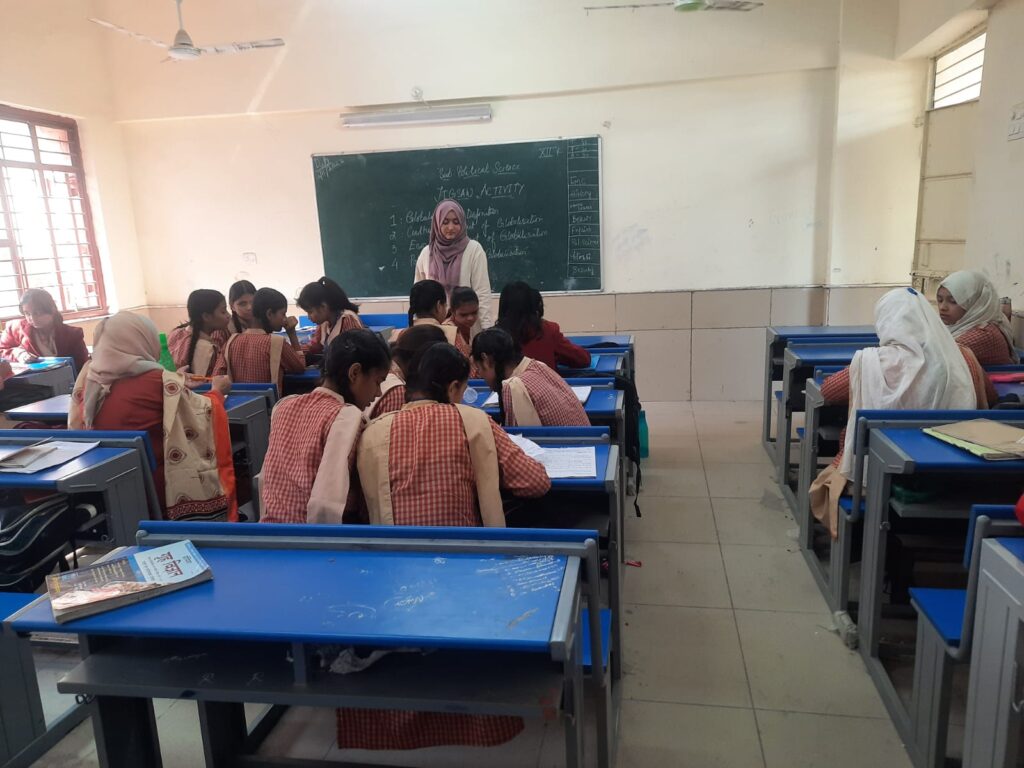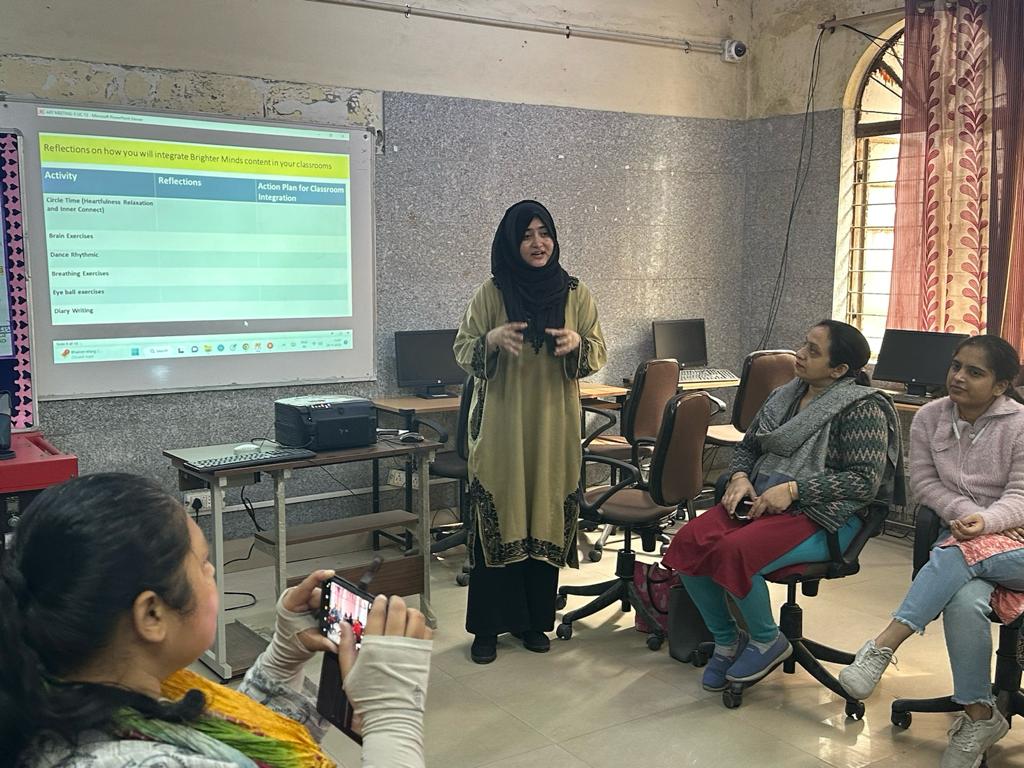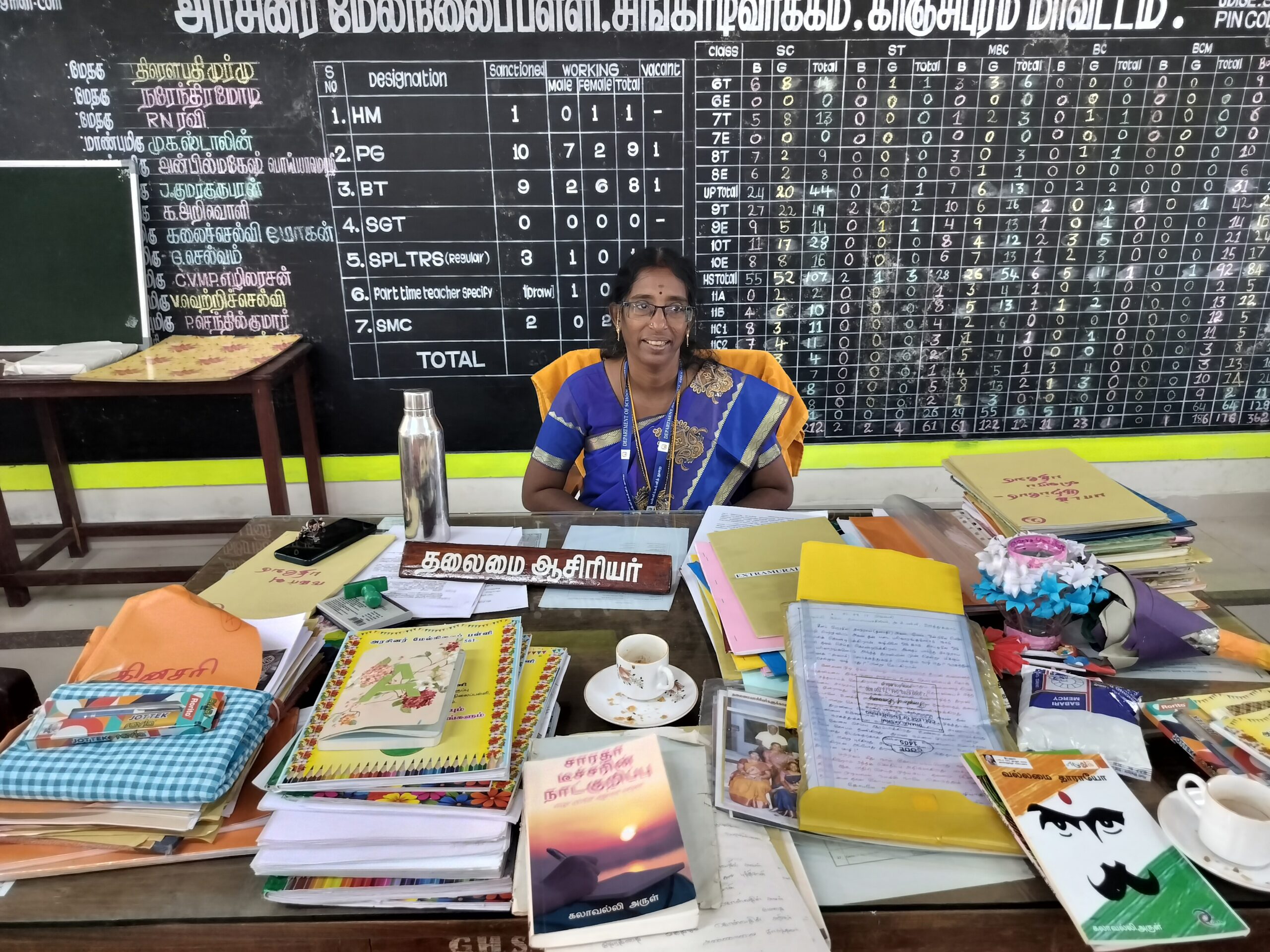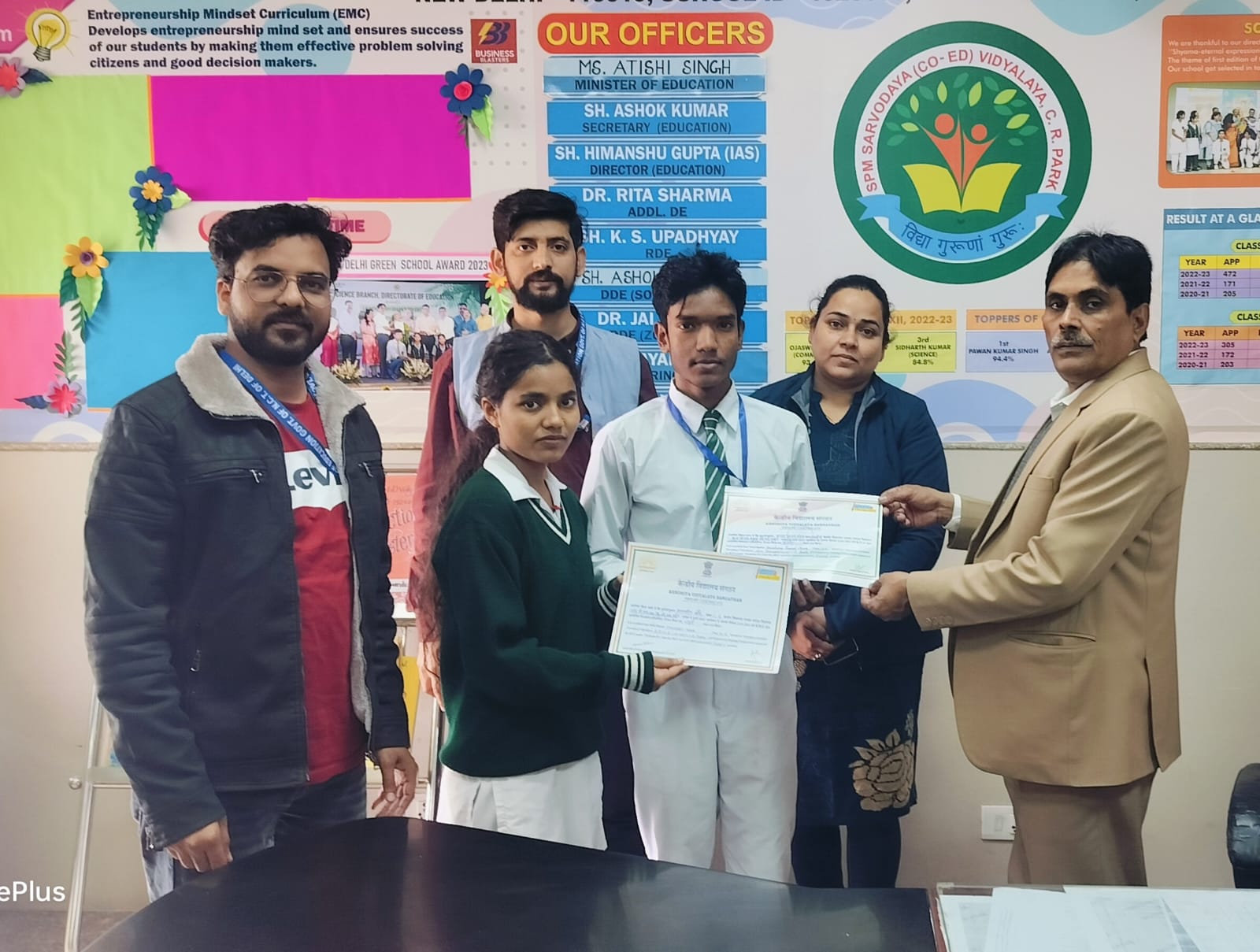Transforming Education: Ms. Faiza Nasir’s Journey of Innovation and Growth

Ms. Faiza Nasir has been shaping young minds as a Lecturer in Political Science at SKV Noor Nagar school for the past four years. Beyond her teaching responsibilities, she has also played an active role in the Teacher Development Coordinator (TDC) programme supported by Centre for Intrinsic Motivation. With her dual experience in classroom instruction and as a TDC, Ms. Faiza is committed to enhancing teaching methods and fostering professional growth in the education sector.
Overcoming Initial Challenges
When Ms. Faiza began her journey, she faced several challenges: low student retention rates, passive learning behaviours, and decreased attentiveness during lessons. Recognizing the need for change, she leveraged strategies from the Learning Improvement Cycles (LICs) provided by the TDC program. These strategies, backed by the Directorate of Education, SCERT, and CIM, focused on building strong connections with students and creating a psychologically safe classroom environment where mistakes were seen as learning opportunities.
Innovative Teaching Techniques
To engage her students, Ms. Faiza employed innovative methods such as name tags and low-stakes quizzes, which promoted active participation and inclusivity. However, the path to success was not without obstacles. Initially, students were resistant to new teaching methods, and organising classroom activities presented logistical challenges. Maintaining consistency in creating a safe and engaging environment while managing classroom dynamics added to the complexity.
Tangible Improvements
Despite these challenges, Ms. Faiza’s perseverance paid off. Through innovative teaching techniques like encouraging student collaboration and building rapport, she observed significant improvements in classroom dynamics. Student engagement soared, evidenced by increased attentiveness and active participation in discussions. These positive changes highlighted the effectiveness of the TDC training and collaborative learning sessions aimed at refining teaching methods.
Enhanced Learning Environment
The application of LIC principles not only boosted academic performance but also created a more conducive learning environment. Students felt more connected to the subject matter and took greater ownership of their learning journey. This shift fostered a collaborative and respectful atmosphere in the classroom, enriching the educational experience for all involved.
Empowerment Through Professional Development
The TDC program empowered Ms. Faiza to embrace new teaching techniques, leading to a more meaningful learning process for her students. The widespread support from fellow teachers, the administration, and the students underscored a positive shift in the school’s educational culture. This collective impact demonstrated the effectiveness of the strategies implemented.
Continuous Reflection and Advice for Educators
Reflecting on her journey, Ms. Faiza emphasises the importance of continuous reflection and adjustment to ensure the success of implemented strategies. She advises fellow educators to build rapport with students, foster a psychologically safe environment, and incorporate innovative teaching techniques to boost engagement and inclusivity. Additionally, she highlights the value of utilising resources provided by SCERT and Centre for Intrinsic Motivation for dynamic teaching and underscores the importance of ongoing professional development in education.




